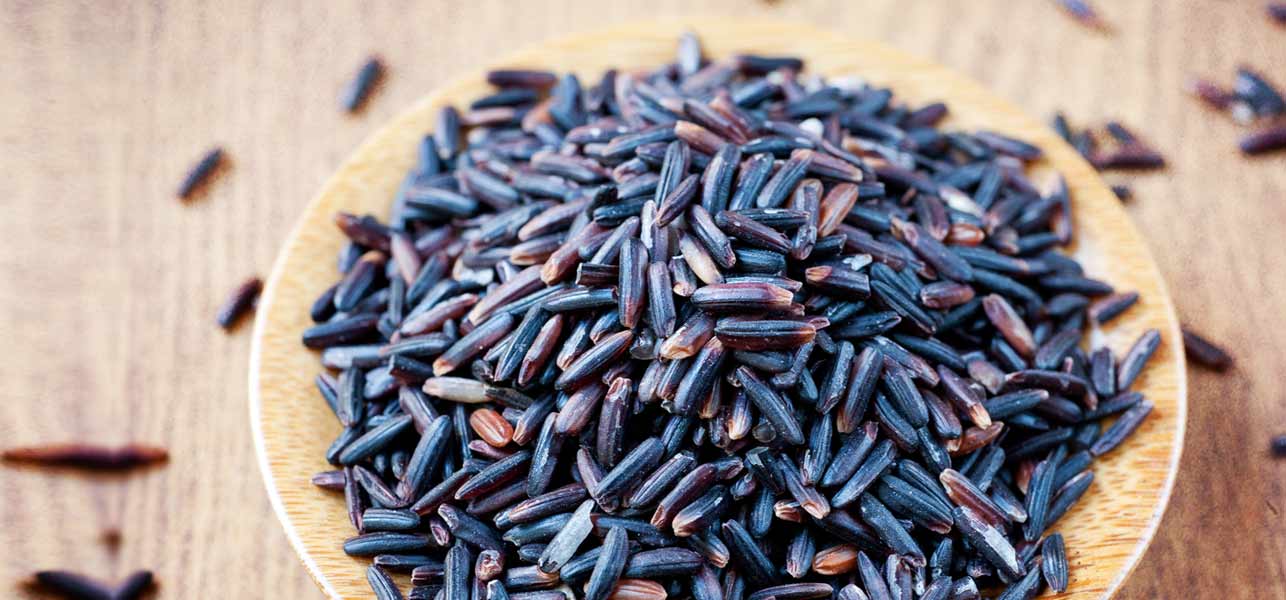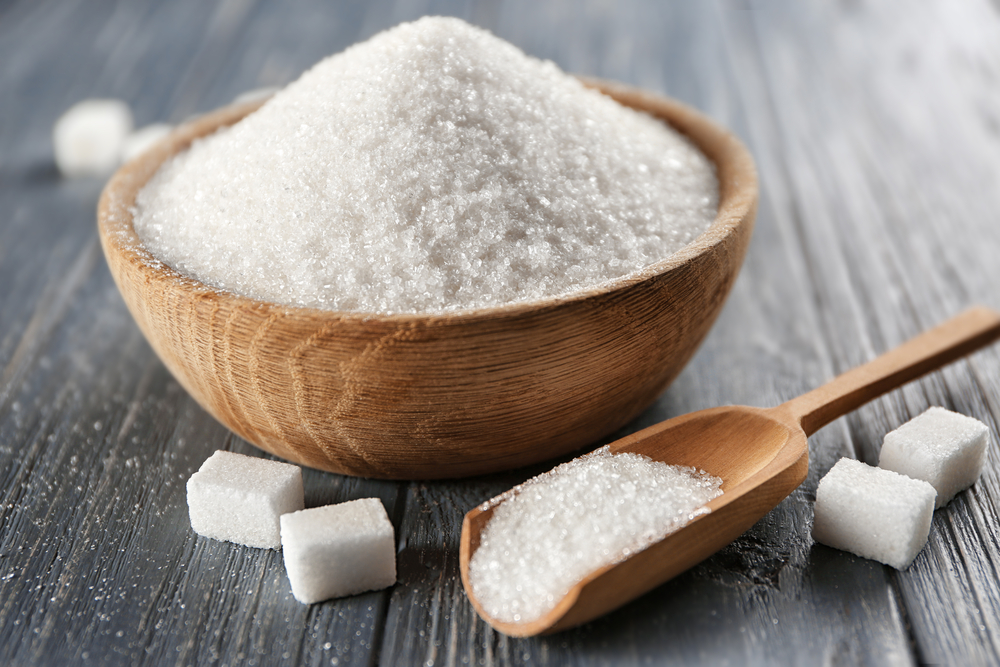Contents:
Medical Video: 5 Surprising Health Benefits of Black Rice | Black Rice Benefits
If you have switched from white rice to brown rice in order to meet the nutritional intake of your diet, congratulations, you have made one good change! But, if you're looking for other ways to further improve the nutritional quality of your diet, it's good to consider occasionally switching to black rice instead of your rice.
Have you never heard of black rice? Not surprisingly, because the use of black rice in the diet is still not as wide as other rice relatives. The history of black rice is rooted in Ancient Chinese customs, where during that time black rice was only provided exclusively for the consumption of the Emperor and his family. From here black rice was nicknamed "Forbidden Rice", because if ordinary people were caught eating black rice without permission, life was at stake.
Relax, in modern times like now black rice is free to be used by anyone. Indonesia has even become one of the largest locations of black rice cultivation in Southeast Asia, in addition to the Philippines. And sure enough, thanks to medical evidence from claims of nutritional profiles and healing abilities, black rice has now been named one of the healthiest wheat seeds in the world.
Read on to find out the various nutritional properties and health benefits of eating black rice.
Health benefits of black rice
Black rice is actually a collection of various types of rice from Oryza sativa L. species, including some of them are glutinous rice. Whole black rice grains maintain all their natural properties because this rice does not go through the bleaching process.
Black rice has a sticky texture and savory taste of beans, it is suitable for making porridge, desserts, traditional black rice cakes, bread, and noodles. This rice also has a denser texture compared to white rice. What are the benefits?
1. High antioxidant content
Black rice is high in antocyanin content. The antocyanin content in black rice is the highest compared to other rice varieties. In fact, according to Zhimin Xu, professor of food technology at Louisiana State University, reported from Live Strong, one tablespoon of black rice contains antioxidants, fiber, and vitamin E which is much higher than the same amount of blueberries. In comparison, blueberries were ranked number one in the fruit with the highest antioxidant levels compared to 40 other fruits and vegetables.
Anthocyanins have been studied and found to be able to prevent heart disease and protect against all kinds of inflammation which are at the core of many common diseases today - from asthma, arthritis, to cancer. Diets that include black rice in the diet have also been shown to reduce triglyceride levels (bad fats in the blood) and increase HDL levels, also known as good cholesterol.
2. High in protein
A bowl of black rice contains carbohydrate which is lower than brown rice, but has a higher fiber and protein content. One serving of black rice (100 grams) provides 17% of your daily protein intake.
3. Rich in vitamins and minerals
Black rice contains a series of important vitamins and minerals, including vitamin E, B1, B2, B3, and B6, as well as zinc, magnesium and phosphorus. Complex B vitamins help the body release energy and process it effectively for your day to day activities, while the magnesium and iron content in it helps fight the 3L syndrome: tired, tired, lethargic. One serving of black rice fulfills 8 percent of daily intake for zin, 6 percent iron, and 20 percent of the daily value for phosphorus. Zinc is a mineral that supports the body's immune system performance, while phosphorus is needed for the formation of teeth and bones.
Black rice also contains riboflavin which plays an important role in protecting cells from oxidative stress, cancer-free free radicals.
4. Good for detoxing the liver
According to some studies, black rice plays an important role in supporting liver health - especially in preventing fatty liver, including alcoholic fatty liver. Again this is because of the high antioxidants in rice.
The liver is one of the largest organs of the human body, responsible for transforming nutrients from food into energy for use by the body. The liver also regulates hormones and plays an important role in detoxifying the body. Black rice has the ability to help the liver eliminate toxic substances thanks to the content of phytonutrients that significantly reduce oxidative stress in the body, while also helping to improve and improve the function of each tissue.
5. Protect the heart
Black rice has been shown to play a role in preventing high blood pressure and decreasing the formation of atherosclerotic plaques in the heart arteries. Atherosclerosis, which is represented by hardening of the arterial wall, is a cardiovascular disease that affects many people throughout the world. Eating black rice is said to reduce the high mortality rate from the disease. This rice also improves heart health by reducing LDL cholesterol and total cholesterol.
6. Promotes digestion
Black rice is high in fiber, which is able to add "mass" to your stool, and therefore eliminates, prevents, and / or cure diarrhea problems and other digestive problems.
Fiber helps increase bowel movements and helps relieve constipation. Fiber in high doses can help prevent the absorption of toxic substances and rinse them out of the body. Also keep in mind that studies have found high-fiber diet from rice and wheat varieties proven to protect against digestive disorders such as irritable bowel syndrome (IBS).
7. Gluten free
Just like other rice varieties, black rice is naturally gluten free, a protein found in all products containing wheat and / or barley. Many people who suffer from gluten allergies might find this rice helps in eliminating digestive problems associated with gluten sensitivity. Celiac disease is one of the rare sensitivities to gluten, and its symptoms and side effects can be damaging - including an increased risk of leaky intestinal syndrome.
8. Good for preventing and managing diabetes
Because of its high fiber content (3.5 times more than white rice), black rice takes longer to digest. It has a protective effect on the digestive system while keeping blood sugar numbers constant. Therefore, eating black rice in the diet also helps you in preventing the risk of type 2 diabetes and managing pre-diabetes, because the sugar content is also low.
Black rice also has a low glycemic index (GI), which is 42.3 when compared to white rice which has a GI reaching 89. Brown rice has a glycemic index of 50. Foods that have a low glycemic index are classified as having a number of 55 or less. A low GI diet increases the body's sensitivity to insulin, which increases diabetes control, and reduces the risk of heart disease.
9. Control your weight
Eating black rice to lose weight shows better results than brown rice, because the texture is denser and richer in fiber but low in calories which makes you feel full longer. In addition, this rice helps to control calorie intake and consequently protects against obesity in the long run.
Eighty-five grams of black rice consists of 200 kcal, 43 grams of carbohydrates, 3 grams of fiber, 6 grams of protein, and 2 grams of fat, while the same portion of brown rice contains 226 kcal, 47 grams of carbohydrates, 2 grams of fiber, 5 grams of protein and 2 grams of fat. A difference of 26 calories may appear to have no effect, but routinely consuming an extra 26 calories once a day for more than one year can cause a weight gain of up to 1.5 kilograms.
10. Increases the sharpness of brain function
Besides functioning to protect the body against cancer, the content of antocyanins in black rice can increase memory acuity and brain cognitive function, by fighting oxidative stress in the body. Oxidative stress contributes to decreased memory and inflammation in the brain.












